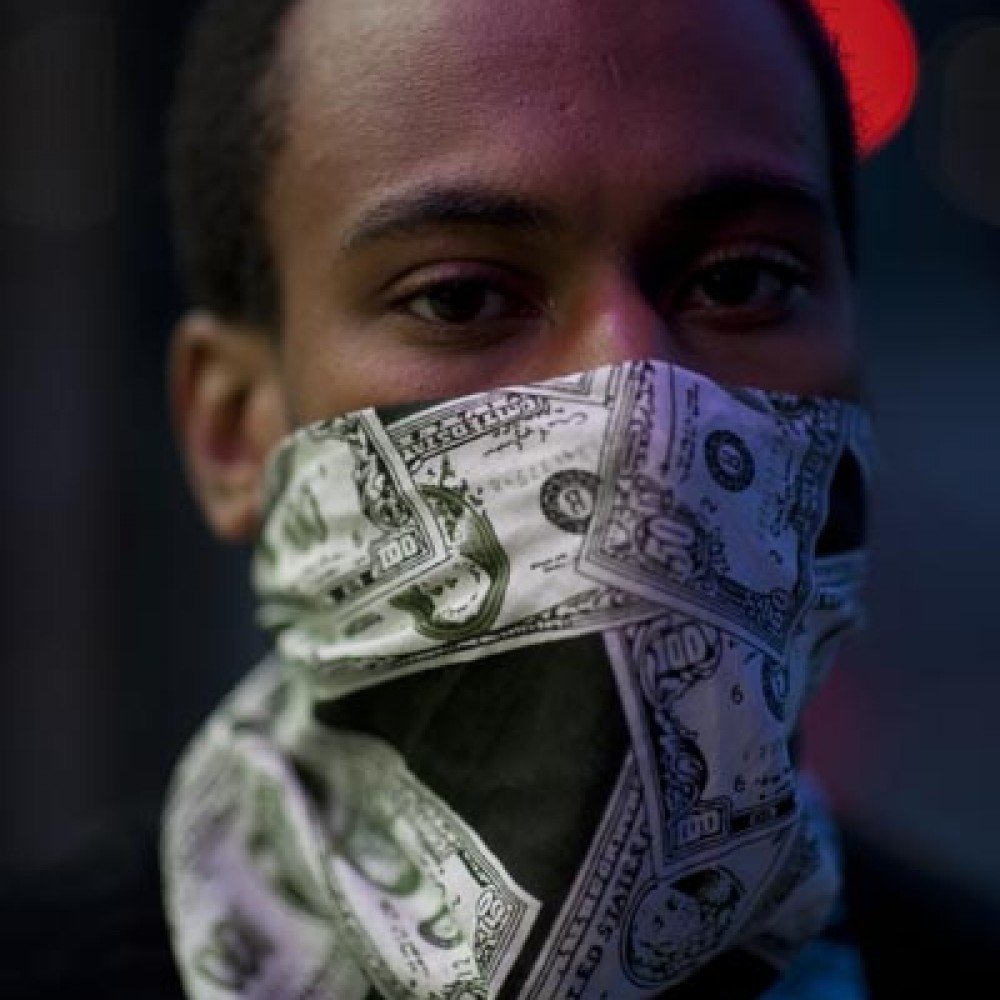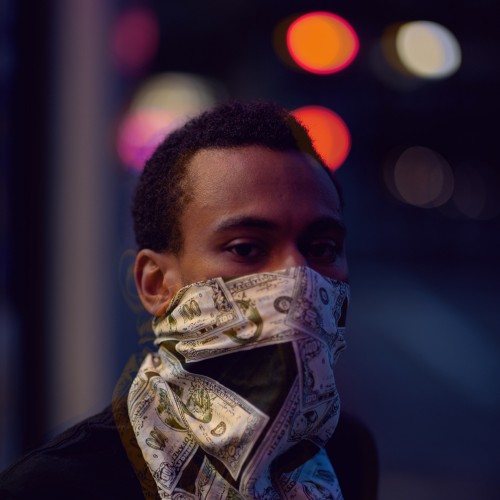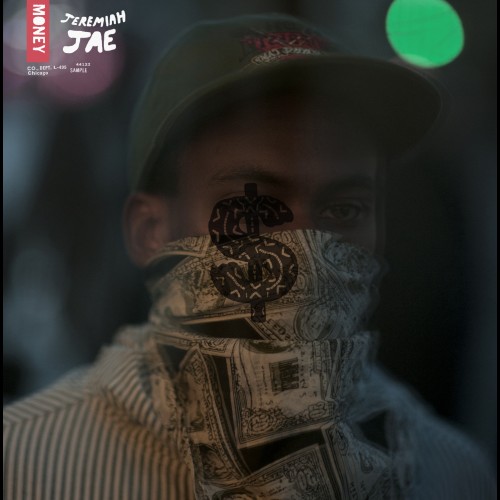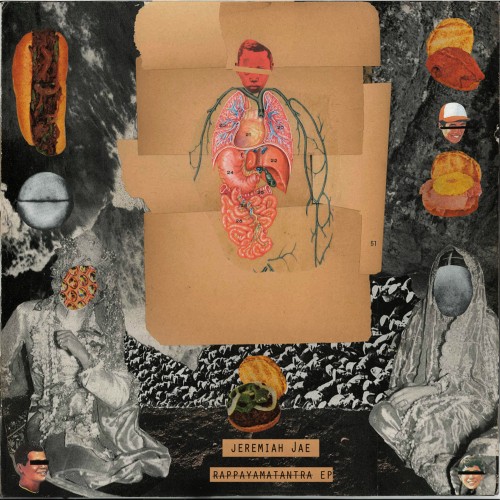
Jeremiah Jae
On Brainfeeder
BIOGRAPHY
Looking at Jeremiah Jae’s 'studio', a tiny room in his Bridgeport apartment, one is struck by the relative scarcity of recent technology on the room’s low coffee tables. There’s a small synth and a tape deck that looked like it might’ve been copped from Walgreen’s sometime in the mid-’90s. A guitar rests in the corner, and there’s a rusty old pocket cornet that will need some fixing up before it’ll play. The digs are humble, but it’s from this...
Looking at Jeremiah Jae’s 'studio', a tiny room in his Bridgeport apartment, one is struck by the relative scarcity of recent technology on the room’s low coffee tables. There’s a small synth and a tape deck that looked like it might’ve been copped from Walgreen’s sometime in the mid-’90s. A guitar rests in the corner, and there’s a rusty old pocket cornet that will need some fixing up before it’ll play. The digs are humble, but it’s from this studio that Jeremiah Jae has produced beats that have earned him—at the age of 21—a deal with Los Angeles-based Brainfeeder Records.
His mother sang gospel and his father was a musical director for Miles Davis during the late, jazz-fusion period of Davis’s career. In high school, Jae listened not to hip-hop but to glam rock, and cites Placebo as a favorite. Groups like Souls of Mischief and Wu-Tang Clan introduced him to hip-hop, and at that point Jae began rhyming.
Together with brothers Tre Smith and Aaron 'Projeck' Butler, he founded a group called the Young Black Preachers, produced YBP’s EP, and continued working on his own projects, while making his own videos and cover art. In 2007, Samiyam, an Ann Arbor-based producer, noticed Jae’s 'Lunch Special Part I' and passed it onto Flying Lotus, the founder of LA’s Brainfeeder record label. A post on Jae’s MySpace wall came first; a private message soon followed. Not long after, Jae was flown to LA to work with FlyLo and was signed to Brainfeeder; his first release, 'Rappayamatantra', is scheduled to drop in early 2011.
From under a layer of gauzy, lo-fi production, Jae is able to conjure the off-kilter beats and ethereal voicings characteristic of a mature producer. A track like 'Police Ball State Disco' might induce trances with its 7/8, world-music feel. On 'Money Huggers', Jae samples the theme to 'Shaft', but eschews extensive drum programming in favor of the original simple hi-hat slowed-down-a -few beats-per-minute. The result pays homage to wah-wah-driven funk, but the minimalism of the beat gives the track a more modern feel. The diversity of influences in Jae’s work speaks not only to his appetite for various genres of music, characteristic of any producer worth his salt, but also to a personal history forged primarily outside of hip-hop. Jae’s musical philosophy is drawn from many sources. He is the rare young emcee who channels jazz improvisation into delivering rhymes. “It’s all about timing,” he says. “Space is important. I try to do it like a trumpeter playing a solo.”
When Jae brings social commentary into his work, the thoughtfulness with which he does it is unusual. “Rappers try to romanticize the hood,” Jae says, so the task is to find a way to critique while staying true to one’s own conception of one’s home. On the FlyLo-produced anthem' Jackson Park', instead of outsized proclamations about his native South Side, Jae opts for understatement and a critical message about his home. The song, which opens, “Mr. Mayor don’t care,” isn’t meant to describe an overtly political stance. “I didn’t want to hate on anyone,” Jae says. “It’s just, there aren’t a lot of good vibes on the South Side, you know? I’m not out to make political statements. I just want to stay rooted in what’s going on around me.”
All of this is, of course, in the service of a single goal, Jae says: “At the end of the day, I want to make music that’s dope.” An ability to manipulate synthesizer and drum tracks into dark, airy atmosphere; a voice that’s all his own, understated despite his youth—it’s all there, and it’s landed him on the brink of fame. When asked if the sudden success has gone to his head or made him at least want to quit his day job at a Bridgeport café, he comes across as both confident and humble: “Until the day Jeremiah Jae has a billion hits, I’m not going to care.”
Jeremiah Jae
On Brainfeeder
Albums
Latest News
BIOGRAPHY
Looking at Jeremiah Jae’s 'studio', a tiny room in his Bridgeport apartment, one is struck by the relative scarcity of recent technology on the room’s low coffee tables. There’s a small synth and a tape deck that looked like it might’ve been copped from Walgreen’s sometime in the mid-’90s. A guitar rests in the corner, and there’s a rusty old pocket cornet that will need some fixing up before it’ll play. The digs are humble, but it’s from this studio that Jeremia...
Looking at Jeremiah Jae’s 'studio', a tiny room in his Bridgeport apartment, one is struck by the relative scarcity of recent technology on the room’s low coffee tables. There’s a small synth and a tape deck that looked like it might’ve been copped from Walgreen’s sometime in the mid-’90s. A guitar rests in the corner, and there’s a rusty old pocket cornet that will need some fixing up before it’ll play. The digs are humble, but it’s from this studio that Jeremiah Jae has produced beats that have earned him—at the age of 21—a deal with Los Angeles-based Brainfeeder Records.
His mother sang gospel and his father was a musical director for Miles Davis during the late, jazz-fusion period of Davis’s career. In high school, Jae listened not to hip-hop but to glam rock, and cites Placebo as a favorite. Groups like Souls of Mischief and Wu-Tang Clan introduced him to hip-hop, and at that point Jae began rhyming.
Together with brothers Tre Smith and Aaron 'Projeck' Butler, he founded a group called the Young Black Preachers, produced YBP’s EP, and continued working on his own projects, while making his own videos and cover art. In 2007, Samiyam, an Ann Arbor-based producer, noticed Jae’s 'Lunch Special Part I' and passed it onto Flying Lotus, the founder of LA’s Brainfeeder record label. A post on Jae’s MySpace wall came first; a private message soon followed. Not long after, Jae was flown to LA to work with FlyLo and was signed to Brainfeeder; his first release, 'Rappayamatantra', is scheduled to drop in early 2011.
From under a layer of gauzy, lo-fi production, Jae is able to conjure the off-kilter beats and ethereal voicings characteristic of a mature producer. A track like 'Police Ball State Disco' might induce trances with its 7/8, world-music feel. On 'Money Huggers', Jae samples the theme to 'Shaft', but eschews extensive drum programming in favor of the original simple hi-hat slowed-down-a -few beats-per-minute. The result pays homage to wah-wah-driven funk, but the minimalism of the beat gives the track a more modern feel. The diversity of influences in Jae’s work speaks not only to his appetite for various genres of music, characteristic of any producer worth his salt, but also to a personal history forged primarily outside of hip-hop. Jae’s musical philosophy is drawn from many sources. He is the rare young emcee who channels jazz improvisation into delivering rhymes. “It’s all about timing,” he says. “Space is important. I try to do it like a trumpeter playing a solo.”
When Jae brings social commentary into his work, the thoughtfulness with which he does it is unusual. “Rappers try to romanticize the hood,” Jae says, so the task is to find a way to critique while staying true to one’s own conception of one’s home. On the FlyLo-produced anthem' Jackson Park', instead of outsized proclamations about his native South Side, Jae opts for understatement and a critical message about his home. The song, which opens, “Mr. Mayor don’t care,” isn’t meant to describe an overtly political stance. “I didn’t want to hate on anyone,” Jae says. “It’s just, there aren’t a lot of good vibes on the South Side, you know? I’m not out to make political statements. I just want to stay rooted in what’s going on around me.”
All of this is, of course, in the service of a single goal, Jae says: “At the end of the day, I want to make music that’s dope.” An ability to manipulate synthesizer and drum tracks into dark, airy atmosphere; a voice that’s all his own, understated despite his youth—it’s all there, and it’s landed him on the brink of fame. When asked if the sudden success has gone to his head or made him at least want to quit his day job at a Bridgeport café, he comes across as both confident and humble: “Until the day Jeremiah Jae has a billion hits, I’m not going to care.”



